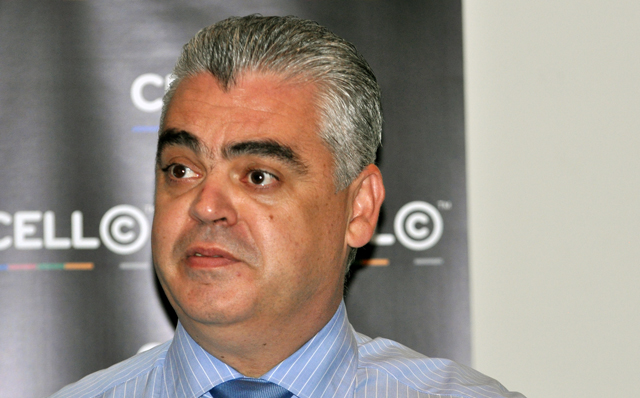
Cell C has posted a net profit of R540m for the year ended 31 December 2016, from a net loss in 2015 of R5,6bn, on the back of strong customer growth.
South Africa’s third largest mobile operator by subscribers said on Tuesday that revenue rose by 11% to R14,6bn, while operating margin (measured using earnings before interest, tax depreciation and amortisation, or Ebitda) was 21%.
It’s the first time that the privately held Cell C has disclosed its results to the market in such detail.
The disclosures come ahead of a planned recapitalisation under which JSE-listed Blue Label Telecoms will acquire a 45% stake for R5,5bn. In terms of the restructuring, Cell C’s net debt will be reduced to below R6bn, from north of R20bn now.
Other key highlights of Cell C’s 2016 numbers are:
- Service revenue rose by 8% to R11,8bn;
- Ebitda climbed by 59% to R3,1bn;
- Average revenue per user was R76, down 4% from R79 in 2015, while average spend per user was R70, down 1% from R71 before;
- Active mobile subscribers rose by 20% to 15,3m (based on users active within the past three months, in line with other operators’ reporting);
- Earnings before interest and tax were R75m, up 1 680%;
- Some had about 15,3m active subscribers at the end of December 2016, up by 20% from 12,8m in 2015. Total active data subscribers climbed by 23% to 12,3m;
- Data revenue was R4,4bn, up by 35% from R3,2bn;
- Capital expenditure was R3,4bn, up 18% from R2,9bn in 2015;
- Direct expenditure was R7,2bn and operational expenditure was R4,6bn, up 3% and 1% respectively on 2015’s numbers;
- Total expenditure rose by 2% to R11,8bn;
- Cell C had 7,6m smartphones on its network, just over 50% of its active base;
- Non-service revenue (handset sales mainly) was R2,9bn, up 26%, while service revenue was R11,8bn (up 8%);
- Average price per megabyte fell by 20% year on year, while voice revenue declined by 2%. The effective price per voice minute declined by 8%.
“These results under the flat economic growth in South Africa are phenomenal,” said Cell C CEO Jose Dos Santos. “There’s been a huge uptake on the value proposition we offer to our customers.”
Dos Santos defended Cell C’s lower capital expenditure spending compared to bigger rivals MTN and Vodacom, saying its “phenomenal” roaming agreement with Vodacom allows it to focus on urban areas, especially the big metros, while not having to invest in outlying areas where its rival has coverage it can take advantage of. — © 2017 NewsCentral Media




